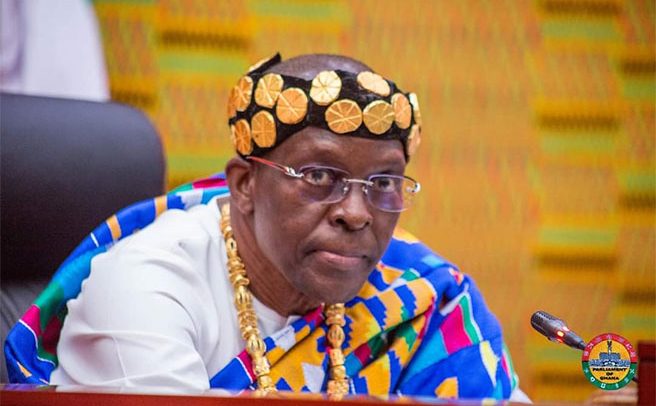SPEAKER OF Parliament, Alban Sumana Kingsford Bagbin, has described as “old school” and “anachronistic” the increasing tendency on the part of the police to arrest journalists for what they consider as “mistakes”.
According to him, the police cannot assume responsibility for “responsible media practice in Ghana” by scanning newspapers and news portals and arresting journalists for “errors and misrepresentations.”
Recently, the police have arrested and detained some radio and television presenters, including Oheneba Boamah Bennie, who was jailed over spurious statements he made against the President and Supreme Court judges.
Mr. Bagbin, inaugurating the Parliamentary Press Corps (PPC) in Accra yesterday, said “I daresay that any attempt by any politician, hiding behind the police institution, to act as the standard bearer of ethical and professional journalism, or the regulator of journalism practice, is not only a pretender but also megalomaniac.”
He said the latest development was sending Ghana back into the “dark ages of media persecution,” adding that “those who are so offended by such write-ups know what recourse they have.”
“Our information (journalists), at times, does not turn out to be entirely accurate. We end up making some misrepresentations, at times impugning on the integrity and reputation of others,” he said.
Mr. Bagbin said Ghana’s legal regime for the media anticipated this problem and prescribed a way out, asserting that the National Media Commission (NMC) and plethora of laws of the country can deal with the excesses of the media and free speech.
For him, Parliament needs to come up with legislation to give the NMC the teeth to whip media practitioners in line, in order to save the country from any possible danger posed by irresponsible journalism.
Demanding Task
The Speaker said working as a journalist is now a more demanding task in contemporary times since journalists are having to cut through both new and traditional media channels in order to reach the public.
“There is a more pressing need for today’s journalists to be not just knowledgeable but very savvy in their day-to-day engagements, if their by-lines are to be worth the read. You, more than anybody, know about the need for timeliness as you compete daily with ordinary citizens with mobile phones, commonly referred to as citizen journalists, who capture events as they happen, post them online with speed and claim they are journalists,” he opined.
He said whilst the traditional media has limited reach, new media with its plethora of platforms are able to reach large numbers of people and audiences in real time.
“In today’s era of fake news, the professional journalist has the added task of checking and cross checking their facts before publishing, and this usually comes at a cost to the speed with which the journalist is able to file his story. This, in part, is the challenge that today’s event will help to mitigate,” he posited.
Support To PPC
Mr. Bagbin stated that over the years, “pressmen in Parliament have worked tirelessly and creditably to disseminate speedy and accurate information from Parliament as an institution to the general public.”
“It has always been my hope that the Press Corps work under a more conducive atmosphere due to the enormous efforts you put into your work and your critical role as a link between Parliament and the citizenry. I am persuaded that a good working environment will enhance your professionalism and also improve upon your effectiveness.”
Second Deputy Majority Whip and MP for Tolon, Habib Iddrisu, s.aid attacks on press freedom is something “we all have to condemn. It is not good for our democracy and development of this nation.”
He assured that the Majority in Parliament and government, would continue to support the media and protect media freedom always, intimating that the NPP is known to have fought for media freedom and would not do anything to thwart it.
Deputy Minority Leader, James Klutse Avedzi, urged members of the PPC to use the new office and its equipment, to accurately report proceedings of the House.
By Ernest Kofi Adu, Parliament House


